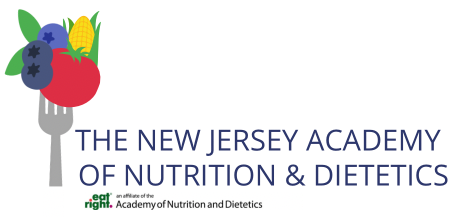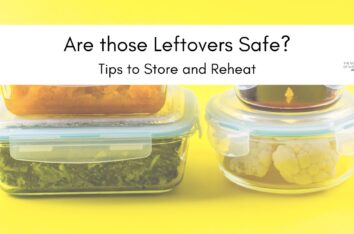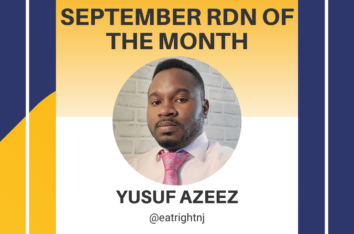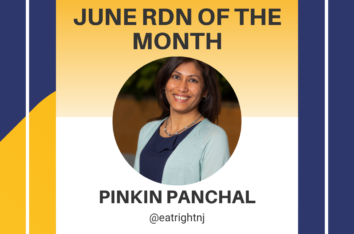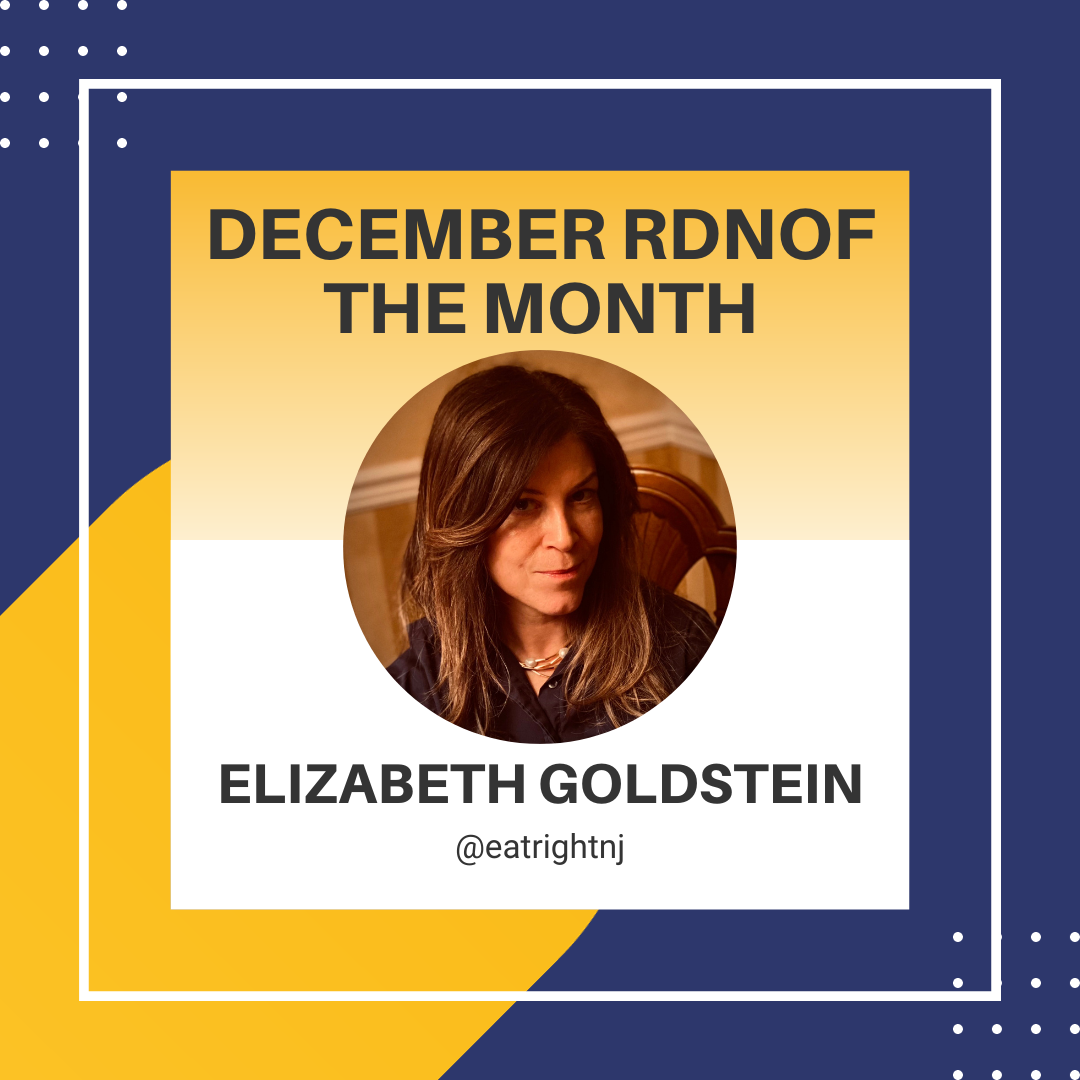
This is National Crohn’s and Colitis Awareness Week. And so, we invite you to help us celebrate the work of Elizabeth Goldstein, RDN, who specializes in using medical nutrition therapy to treat these conditions. She is also actively helping the AND to establish a GI specialist credential.
A graduate of the NYU Nutrition and Dietetics Program, Elizabeth has always been passionate about food. It was, however, her mother’s hospitalization with uncontrolled blood pressure that propelled her into making it a career. “She was given medication and sent home. I wondered, is
there something in addition to the medication that might help? I started to do research and could not stop. I was hooked.” She adds that with a made-up mind and further research done to help with the decision of which route to take, one thing remained clear “the field was perfectly in line with my personality and career goals. The path and journey were not one directional. It felt empowering and freeing.”
And when it came time to decide what her specialty as an RDN would be, Elizabeth’s decision was once again spurred by a matter close to home. She relied on her gut – literally! “I decided to specialize in GI because I have been diagnosed with Ulcerative Colitis and prior to my diagnosis, one of my closest childhood friends had Crohn’s. The more research I was doing to help myself, the more I knew I had to share the information with others that suffer from IBD and other GI problems.”
She recalls that with her initial diagnosis of UC, which was a mild form, she was told that diet does not contribute to the effects of her condition. “I was sent home. The disease progressed. I was given medications. I was told diet and lifestyle do not play a role. While I needed medication, it was soon undeniable that diet and lifestyle were connected to my UC flares. At the time, there were still many in the healthcare arena that did not think the diet and lifestyle connection was valid, but the scientific community was changing. I was changing. I started to do a deeper dive into food, nutrition, stress reduction, and movement. This changed my life. IBD and GI symptoms impact what, how, and when one eats. It impacts work and social interactions. And since we must eat, navigating the food environment while experiencing GI problems can be mentally and physically exhausting. Being able to share my education and, when appropriate, my personal experience with UC with both my clients and students has been a gift.”
Elizabeth is also a visiting lecturer at the American University of Rome, Nutrition and Food Studies Program, Rome, Italy.
@eyg_nutrition
https://eygnutrition.com
Facebook: eygnutrition
